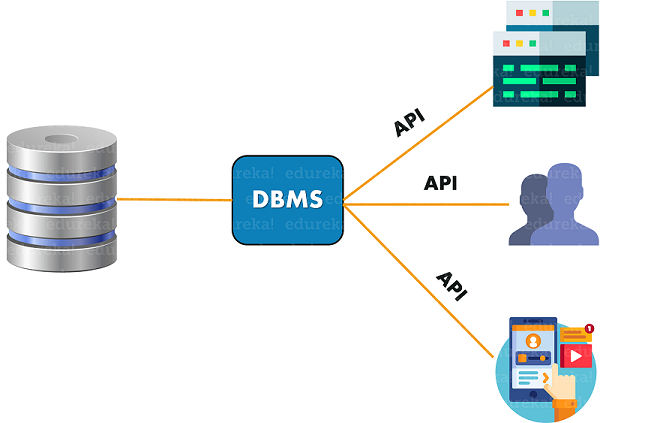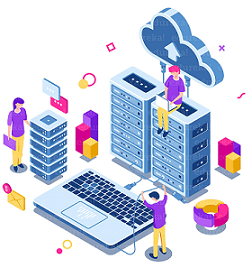SQL Essentials Training
- 12k Enrolled Learners
- Weekend/Weekday
- Self Paced
There is no doubt in the fact that humongous amounts of data get generated on a daily basis from various applications, business sites in different formats. But, how do you think, we can handle data present in various formats and generate useful insights. Well, to do that, we need the database management systems(DBMS).
Before we understand about DBMS, let us understand what is a database and how it plays an important role in database management systems.
As the name suggests, a database is a place where all the data gets stored in a structured format. It helps the users to easily access, manage and update the required information. So, in layman terms you can understand, a database as a big container wherein all the information about a website, or an application is stored in a structured format. You can get a better understanding with the SQL Server Certification Course.
For example, a company can have various details of employees, such as name, empID, email, blood group, salary, and so on. All these details can be stored in a database with the name “Employee” in a structured format such as tables, hierarchy, etc.
In any organization, be it a startup or a hyper-growth company, many databases can be present, but it is very important to manage those databases in a proper manner. So, next in this article let us understand how to manage these databases.
DBMS or Database Management System is a software application used to access, create, and manage databases. With the help of DBMS, you can easily create, retrieve and update data in databases. A DBMS consists of a group of commands to manipulate the database and acts as an interface between the end-users and the database. Refer below.

Database Management Systems also aims to facilitate an overview of the databases, by providing a variety of administrative operations such as tuning, performance monitoring, and backup recovery.
Database Management Systems allows users to do the following:
 The following are a few characteristics of DBMS:
The following are a few characteristics of DBMS:
To limit the permissions of the users
Provide multiple views of the single database schema
Facilitates security and removes data redundancy
Allows multi-user transaction processing and sharing of data
Follows the ACID property
Offers both physical and logical data independence
Now, let us move forward and understand the types of DBMS.
Following are the different types of DBMS:
Some of the popular DBMS software are MySQL, PostgreSQL, Oracle, SQLite, MariaDB, MS SQL Server, etc. All these software are based on different types of DBMS available in the market. So, it is completely the users choice, on which type of database will suit his/ her data, and prove beneficial to generate meaningful insights.
Moving forward in this article, let us look into the advantages and disadvantages of DBMS.
Few of the advantages of the database management system are as follows:
It offers a variety of methods to store and retrieve various formats of data using the query language.
It can be easily maintained because of its nature of a centralized database system.
Facilitates multiple applications using the same data with less development and maintenance time.
Provides data security and integrity with minimal data duplicity and redundancy.
It allows seamless integration into the application programming languages like Java and Python to enable the users to connect a database with any application or website.
Has automatic backup and recovery systems to create an automatic backup of data.
Authorizes users who can view, share and access data.
Databases Management Systems are often complex systems.
Few of the DBMS available in the market are licensed. So, you have to pay to us that DBMS in your organization.
Most leading companies store their data in a single database. Hence, if that database is damaged due to any reason, the complete data would be lost.
DBMS that you wish to use might not be compatible with an organization’s operational requirements.
DBMS are large in size and need time to setup.
Well folks, with that we come to an end to this article on DBMS. I hope you found this article informative. If you wish to learn more about the commands used in DBMS, you can refer to my article on SQL commands.
If you wish to learn more about MySQL and get to know this open-source relational database, then check out our MySQL DBA Certification Training which comes with instructor-led live training and real-life project experience. This training will help you understand MySQL in-depth and help you achieve mastery over the subject.
Got a question for us? Please mention it in the comments section of this article and I will get back to you.
 Thank you for registering Join Edureka Meetup community for 100+ Free Webinars each month JOIN MEETUP GROUP
Thank you for registering Join Edureka Meetup community for 100+ Free Webinars each month JOIN MEETUP GROUPedureka.co